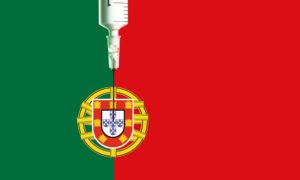 When the drugs came, they hit all at once. It was the eighties, one in ten residents slipped into the deep of heroin addiction—bankers, university students, carpenters, socialites, miners—and Portugal fell into a panic.
When the drugs came, they hit all at once. It was the eighties, one in ten residents slipped into the deep of heroin addiction—bankers, university students, carpenters, socialites, miners—and Portugal fell into a panic.
The way Álvaro Pereira tells the story, it all began in the south. The eighties were prosperous in Olhão, a Portuguese fishing town thirty-one miles west of the Spanish border. Coastal waters filled nets from the Gulf of Cádiz to Morocco, local and international tourism was growing, and currency flowed with relative ease throughout the southern Algarve region. Portugal had emerged from a seventies full of massive changes: the death of long-ruling President António Salazar, the fall of his repressive government, the end of brutal colonial wars, and the bumpy return of thousands of soldiers and colonial settlers. Sunny Olhão, brimming with potential in this new, freer era, was a prime place for a young doctor to set up shop, and Álvaro Pereira moved south with his wife to do just that.
I met Pereira three decades later. He was sprightly and charming, with a […]










